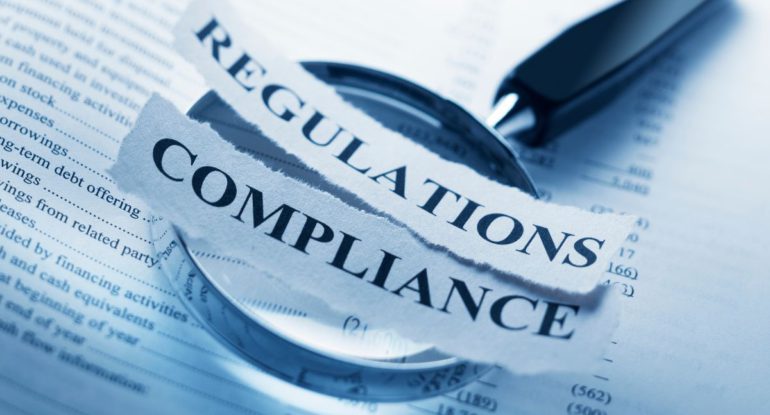Navigating The Regulatory Landscape In The Cryptocurrency Industry

The cryptocurrency industry is one of the most innovative and rapidly evolving sectors of the global economy. However, this industry also faces significant regulatory challenges as governments and financial institutions struggle to understand and adapt to the new technology. Navigating the regulatory landscape in the cryptocurrency industry can be a daunting task, but it is also essential for professionals in this field to stay compliant while driving innovation.
The regulatory environment for cryptocurrencies varies widely by country and region. Some countries, such as Japan and Switzerland, have taken a proactive approach to regulating cryptocurrencies and have established clear guidelines and regulations for businesses operating in this space. Other countries, such as China and India, have taken a more cautious approach and have imposed restrictions on cryptocurrency trading and mining.
The European Union has approved new regulations for the tracking and tracing of cryptocurrency transfers within its borders. The move is aimed at increasing transparency and accountability in the crypto sector, which has been the subject of growing scrutiny in recent years.
Under…— Theodoros Kringou FCG, FCICM (@Theodorosk) April 23, 2023
In the United States, the regulatory environment for cryptocurrencies is complex and constantly evolving. The Securities and Exchange Commission (SEC) has taken a particularly active role in regulating cryptocurrencies, and has issued guidance on the treatment of initial coin offerings (ICOs) and other cryptocurrency-related securities. The Commodity Futures Trading Commission (CFTC) also regulates cryptocurrency derivatives, such as futures and options contracts.
Navigating this complex regulatory environment requires a deep understanding of the legal and regulatory frameworks that apply to cryptocurrencies. Professionals in the cryptocurrency industry must be familiar with a range of laws and regulations, including securities laws, anti-money laundering (AML) and know-your-customer (KYC) regulations, and tax laws. They must also stay up-to-date with new developments and changes in the regulatory landscape.
🚨 Breaking news
Coinbase, a major cryptocurrency exchange, has filed a lawsuit against the US Securities and Exchange Commission (SEC) in an effort to seek clarity on cryptocurrency regulations The lawsuit aims to challenge the SEC’s recently announced plans to classify certain…— TruQuest (@TruQuest_69) April 27, 2023
In addition to regulatory compliance, professionals in the cryptocurrency industry must also prioritize the security of digital assets and transactions. This requires a strong understanding of cybersecurity best practices and protocols, as well as the ability to identify and mitigate risks associated with digital asset storage and transmission.
Despite these challenges, there are many opportunities for professionals in the cryptocurrency industry to drive innovation and make a meaningful impact on the global economy. By staying compliant with regulations and prioritizing security, professionals can help to build a sustainable and thriving ecosystem for cryptocurrencies and blockchain technology.
To stay compliant in the regulatory landscape of the cryptocurrency industry, professionals should seek out legal and regulatory experts to help navigate the complex regulations and laws. It is also important for professionals to stay up-to-date with the latest developments in the regulatory environment, such as new guidance or enforcement actions by regulatory bodies. Finally, professionals should prioritize strong cybersecurity measures to protect digital assets and transactions, including the use of secure storage and transmission protocols.
Also, read – Understand The Key Differences Between Cryptocurrency And Tokens
Top 10 cryptocurrency regulations every investor should know
As the cryptocurrency industry continues to grow and mature, it is important for investors to be aware of the regulatory landscape and how it affects their investments. Here are the top 10 cryptocurrency regulations that every investor should know:
- Securities Laws: In many countries, including the United States, cryptocurrencies are considered securities and are subject to securities laws. This means that they must be registered with the appropriate regulatory bodies and comply with reporting and disclosure requirements.
- Anti-Money Laundering (AML) and Know-Your-Customer (KYC) Regulations: These regulations require cryptocurrency exchanges and other businesses to verify the identities of their users and report suspicious transactions to the appropriate authorities.
- Tax Laws: Cryptocurrency transactions are subject to capital gains taxes in many countries, including the United States. Investors must keep accurate records of their transactions and report their gains or losses on their tax returns.
- Futures Trading Regulations: Cryptocurrency futures contracts are subject to regulation by the Commodity Futures Trading Commission (CFTC) in the United States and similar bodies in other countries.
- Initial Coin Offerings (ICOs): ICOs are subject to securities laws and regulations in many countries, and investors should be aware of the risks associated with investing in these offerings.
- Crypto Exchanges: Cryptocurrency exchanges are subject to regulation in many countries, including registration with financial regulatory bodies and compliance with AML and KYC regulations.
- Cryptocurrency Mining: In some countries, such as China and Iran, cryptocurrency mining is illegal. In other countries, it is subject to regulation and taxation.
- Consumer Protection: In many countries, consumers are protected by consumer protection laws when they invest in cryptocurrencies. This includes protections against fraud, misrepresentation, and other illegal activities.
- International Regulations: Cryptocurrencies are subject to regulation in many different countries, and investors should be aware of the regulations in each country where they are investing.
- Stablecoins: Stablecoins, which are cryptocurrencies pegged to the value of a traditional currency, are subject to additional regulations and scrutiny due to their potential impact on the global financial system.
Investors should consult with legal and financial experts to ensure they know the regulations that apply to their investments in cryptocurrencies. By staying informed and complying with these regulations, investors can help to ensure that their investments are safe and secure.
In conclusion
Navigating the regulatory landscape in the cryptocurrency industry requires a deep understanding of legal and regulatory frameworks and a commitment to security and compliance. Despite the challenges, there are many opportunities for professionals in this field to drive innovation and impact the global economy. By staying informed and prioritizing compliance and security, professionals can help to build a thriving and sustainable ecosystem for cryptocurrencies and blockchain technology.




























































